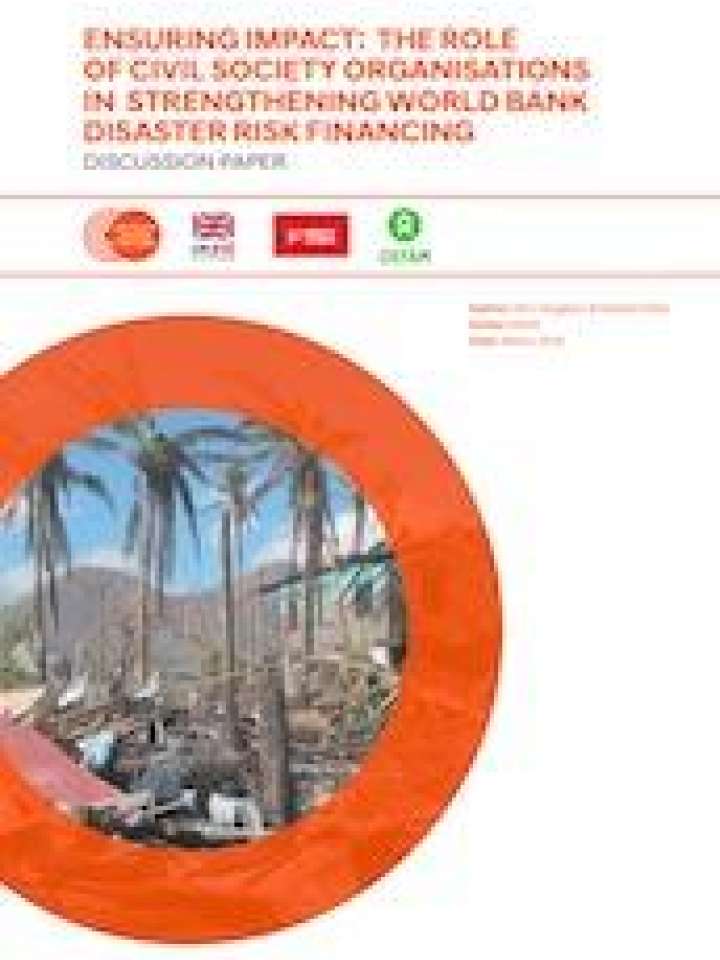Ensuring impact: The role of civil society organisations in strengthening World Bank disaster risk financing
Drawing on examples from around the world, this discussion paper argues that civil society organisations (CSOs) play a vital role in ensuring that crisis financing approaches are designed and delivered effectively. It concludes that the World Bank, other donors and national governments should partner more with CSOs in crisis financing.
Key findings and recommendations of the research include:
- CSOs are already essential actors in designing and delivering DRM and humanitarian responses. They are particularly important in ‘last mile’ delivery and in reaching the most excluded communities. As such, they offer significant knowledge and valuable perspective that could be better integrated into the World Bank’s disaster risk financing (DRF).
- CSOs can strengthen the focus on implementation and impact. CSOs in the vibrant DRR community are already deeply involved in contingency planning, linking governments and communities and bridging local and national planning. In fragile contexts, CSOs are often the only partner able to access communities and deliver services in contested areas, making them a natural partner of the World Bank as it works to reach its goal of ‘leaving no one behind.’
- CSOs can improve performance and reduce risk by strengthening governance, accountability and learning. DRF can be politically challenging at the national level. By working as full partners with organisations such as the World Bank, CSOs can help to build political support for better DRF arrangements and hold governments and DRF providers accountable for their decisions and the products provided. CSO expertise in monitoring, evaluation and learning can also support wider efforts, demonstrating impact and supporting scaling of proven approaches.
The report concludes with recommendations for both the World Bank and CSOs on how they can better engage each other.
Explore further
